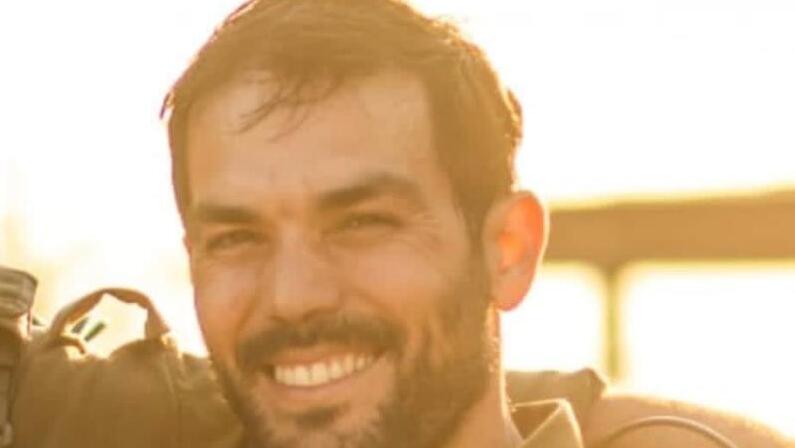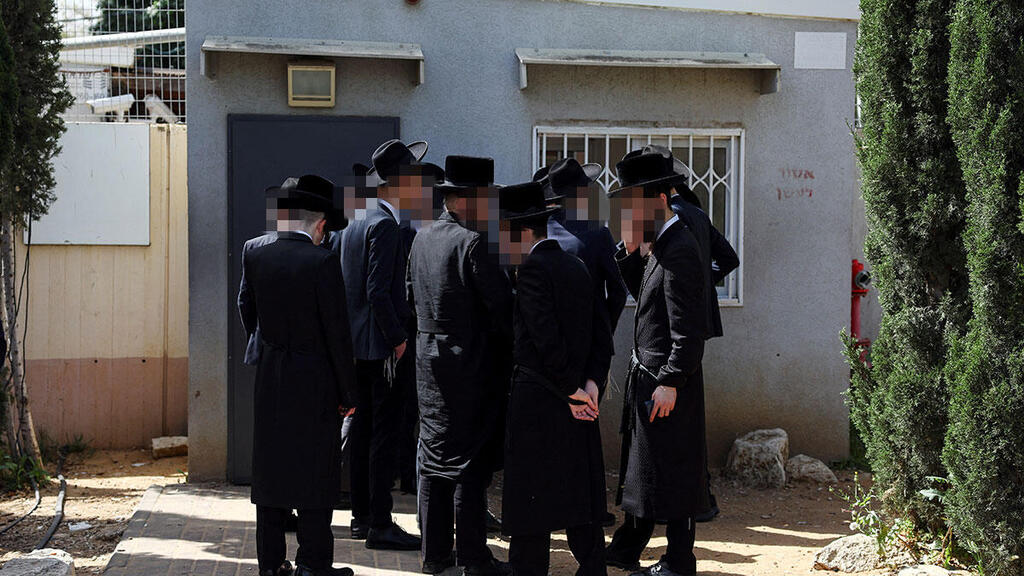Getting your Trinity Audio player ready...
First sergeant (res.) Moti Rave, 37, a combat engineering operator who fell in battle in southern Gaza, joined the IDF after the war began. Rave who grew up in a Haredi household and did not serve in the regular army in his youth, opted not to stand by after the October 7 massacre. He joined Stage B recruitment, a track for Haredi men over the draft age who want to contribute to the war effort.
The IDF's Human Resources Division developed service tracks for those generally exempt from conscription, assigning them to roles based on the IDF's needs, such as paramedics, medics, and heavy truck drivers. This specialized track includes a brief, three-week basic training at a closed base, followed by job-specific training, after which recruits join the reserves. This recruitment is only for those aged 26 and over, the exemption age.
Since the beginning of the war, more than 4,000 Haredi individuals have applied to join the IDF under Stage B to be part of the reserves, despite not having served in regular service. Over 1,100 have been enlisted and integrated into various reserve roles. Others are awaiting enlistment or have been told that due to their younger age, they must join regular service tracks.
Both the IDF and the Netzah Yehuda association, which supports the initiative, see great importance in Stage B recruitment, primarily to "normalize uniform-wearing individuals in the Haredi community" and to soften resistance within parts of the Haredi public to any military integration.
Rave completed basic training at level 03 and trained as a D9 operator. He held a license for heavy vehicles and was trained to operate loaders, excavators, and bulldozers, which led to his role as a combat engineering operator. Initially, Rave served in the defense of the settlement of Shani, where he lived, but he requested a transfer to the front lines and joined the Givati Brigade.
Nathan Mefi, head of the Data Collection and Casualties Department in the Home Front Command, shared his experience: "I myself enlisted in 2011 to Stage B differently from today. I was 30 and wanted to start working. I thought if I'm not in yeshiva and going to work, I should enlist first to be part of the security effort. Since October 7, I've been in reserves."
He added, "Some always wanted to be part of this and saw it as an opportunity, realizing it was the right time to enlist without scrutiny from their community. I personally never walked in uniform in Haredi areas. Now, since the war, I do. After the war started, several people approached me expressing interest in enlisting. A 44-year-old man recently told me he’d be happy to enlist, someone who never thought of joining the army."
According to Mefi, "A new psychologist, Haredi in every sense, sought a role and was recruited as a mental health officer at Shura Camp. Many Haredi social workers joined the mental health team at Shura. The army understood the importance of the hour and opened many Stage B recruitment groups."
In recent weeks, 61 women from religious and Haredi backgrounds also joined Stage B. About two weeks ago, a swearing-in ceremony was held for these 61 women, who had previously been exempt from military service.
The women underwent basic training as part of the Stage B project and enlisted as psychologists, social workers, mental health officers, nurses, paramedics, engineers, instructors, and more. "In the midst of your personal lives, you chose to stop everything, join the national effort, and enlist," said Captain Shaked Milo, a company commander in the Magal unit, during the swearing-in ceremony.
The women pledged allegiance to the IDF and received a Bible from their team commanders. Lieutenant Colonel Reut Zechariah, the base commander from a religious background, shared in her opening talk with the trainees: "Each woman here reminds me of the friends I grew up with, which only enhances the significance of their presence here—it’s truly remarkable. I'm proud to command this company and hope we can continue opening more and more recruitment cycles due to the demand we're seeing."



